Abstract
Globally, it is estimated that there are 38 million persons who are blind. Moreover, a further 110 million people have low vision and are at great risk of becoming blind. The main causes of blindness and low vision are cataract, trachoma, glaucoma, onchocerciasis, and xerophthalmia; however, insufficient data on blindness from causes such as diabetic retinopathy and age-related macular degeneration preclude specific estimations of their global prevalence. The age-specific prevalences of the major causes of blindness that are related to age indicate that the trend will be for an increase in such blindness over the decades to come, unless energetic efforts are made to tackle these problems. More data collected through standardized methodologies, using internationally accepted (ICD-10) definitions, are needed. Data on the incidence of blindness due to common causes would be useful for calculating future trends more precisely.
Full text
PDF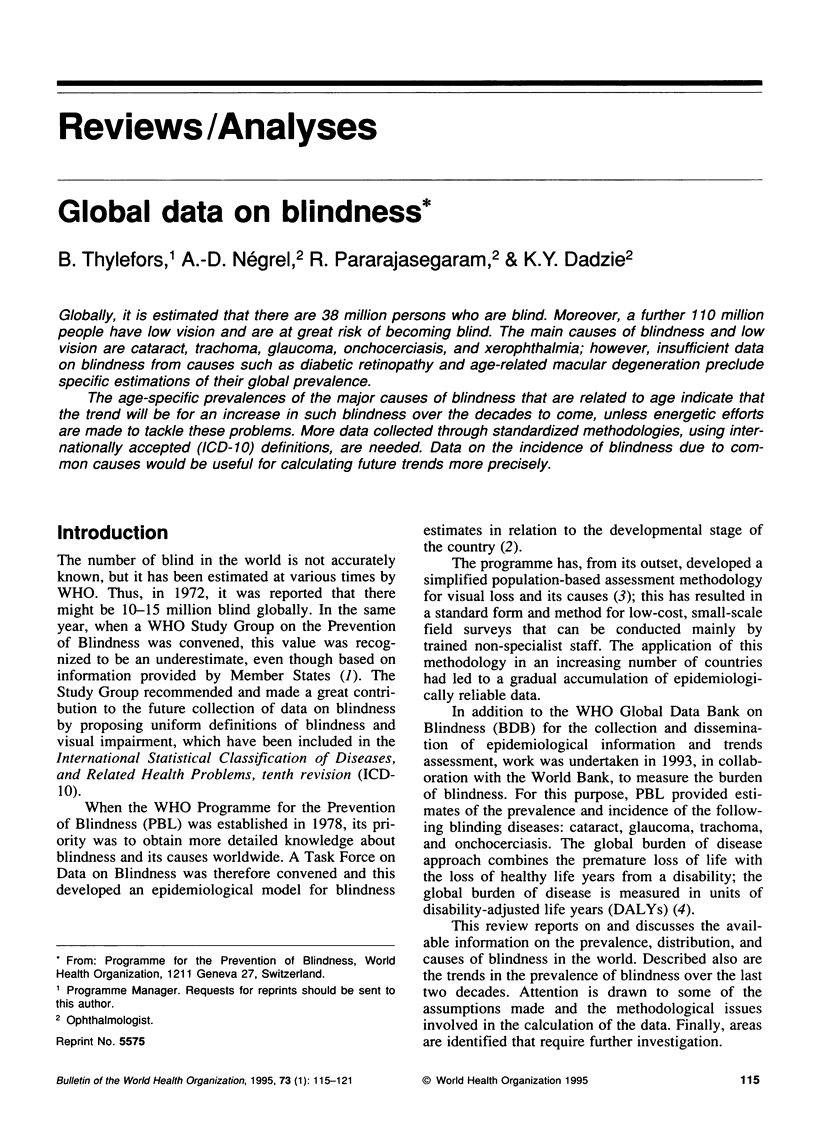
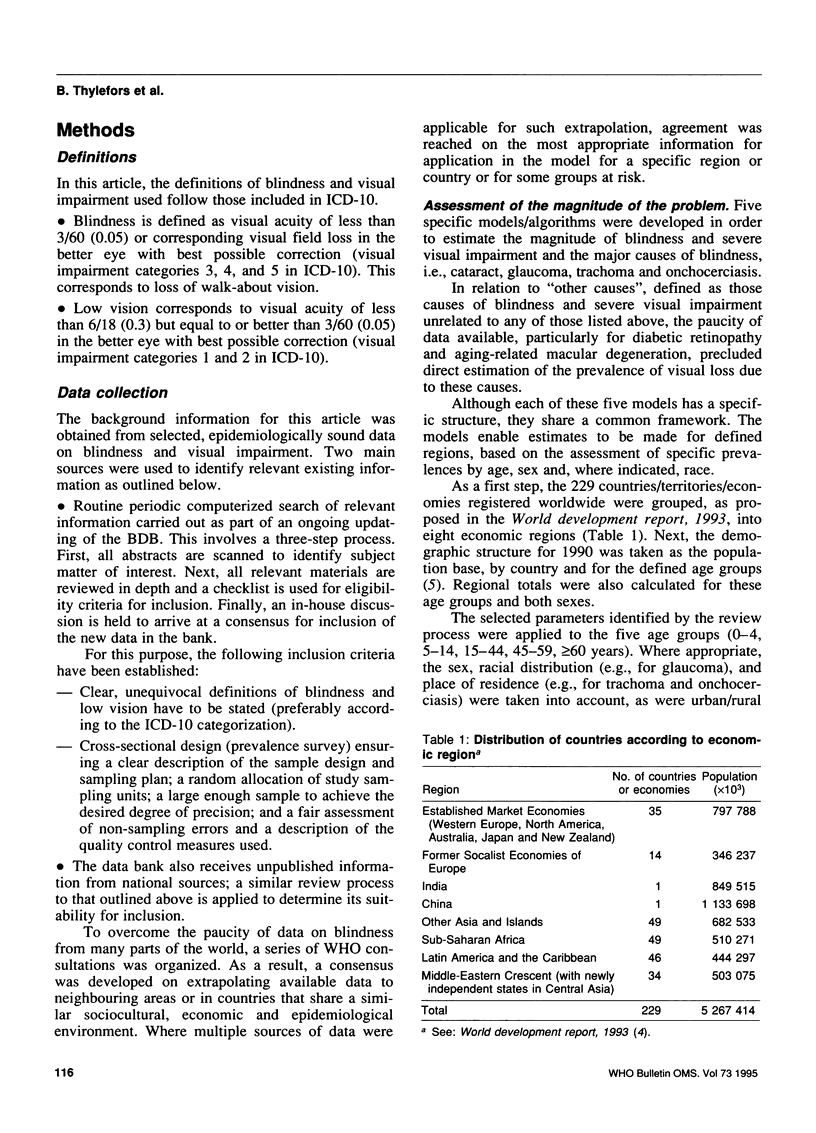
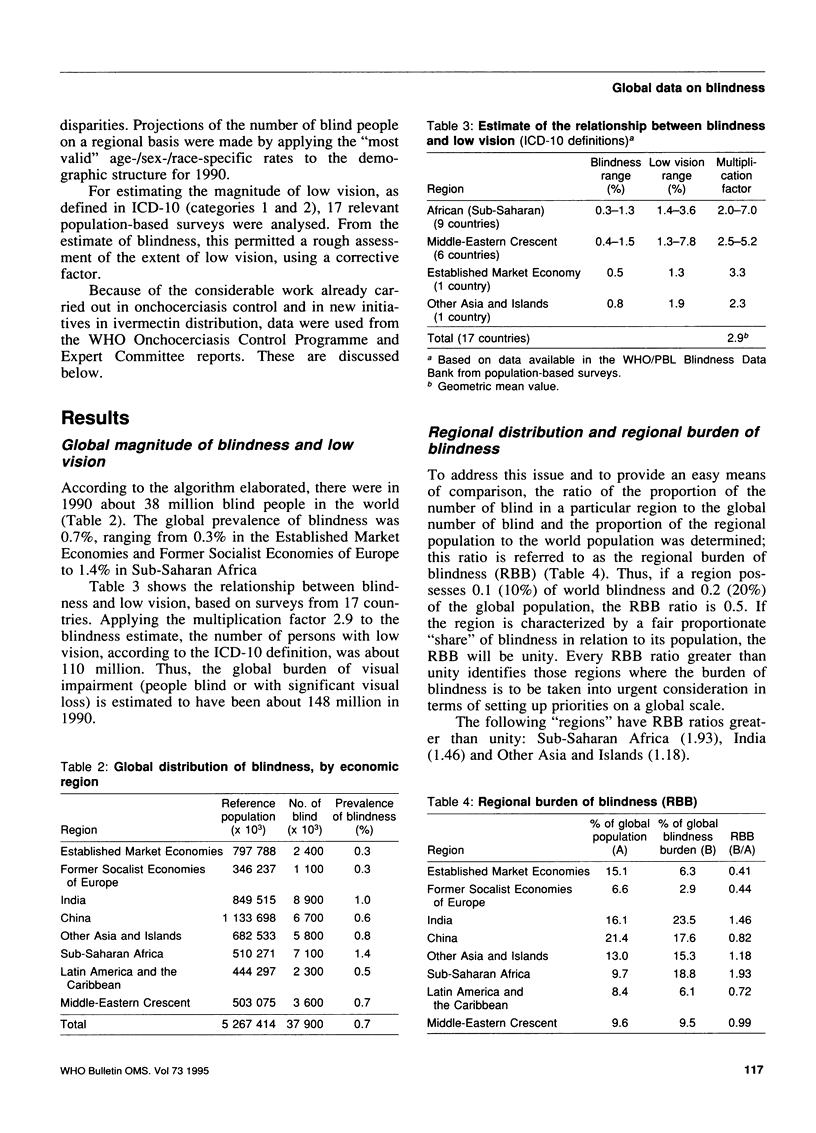
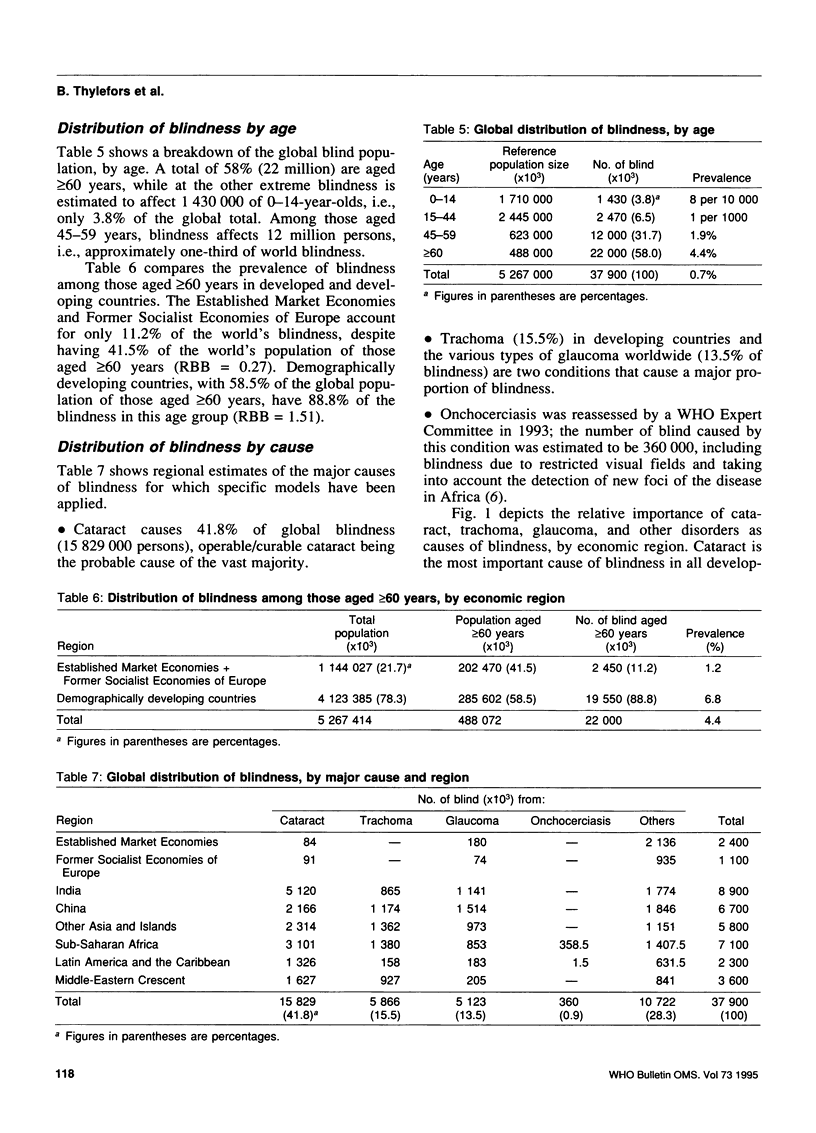
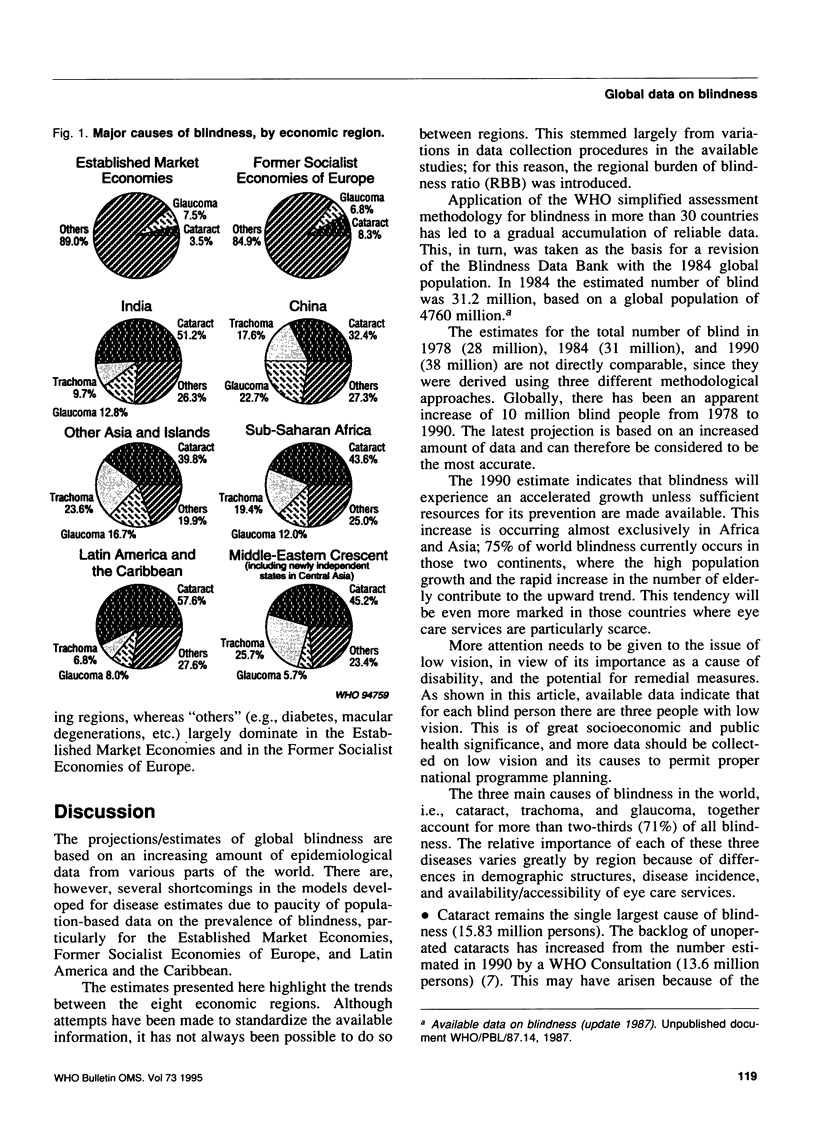
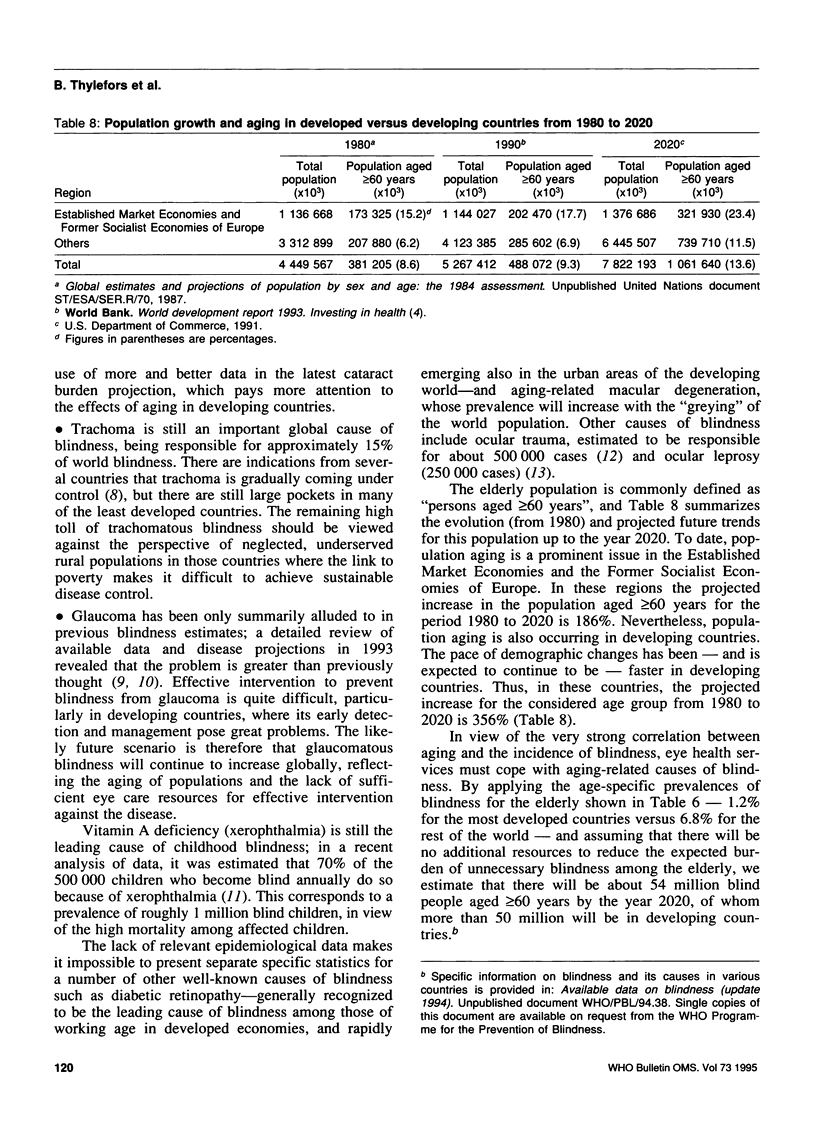
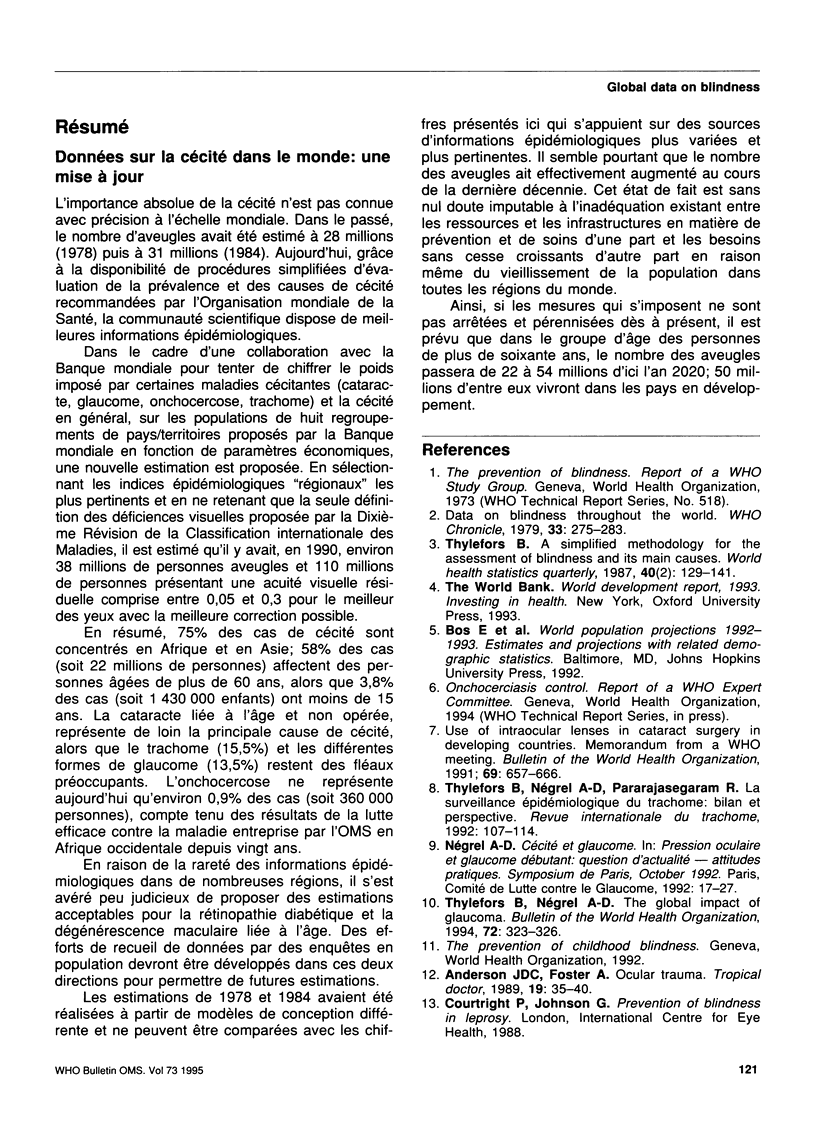
Selected References
These references are in PubMed. This may not be the complete list of references from this article.
- Anderson J. D., Foster A. Ocular trauma. Trop Doct. 1989 Jan;19(1):35–40. doi: 10.1177/004947558901900112. [DOI] [PubMed] [Google Scholar]
- Thylefors B. A simplified methodology for the assessment of blindness and its main causes. World Health Stat Q. 1987;40(2):129–141. [PubMed] [Google Scholar]
- Thylefors B., Négrel A. D., Pararajasegaram R. La surveillance épidémiologique du trachome: bilan et perspective. Rev Int Trach Pathol Ocul Trop Subtrop Sante Publique. 1992;69:107–114. [PubMed] [Google Scholar]
- Thylefors B., Négrel A. D. The global impact of glaucoma. Bull World Health Organ. 1994;72(3):323–326. [PMC free article] [PubMed] [Google Scholar]



